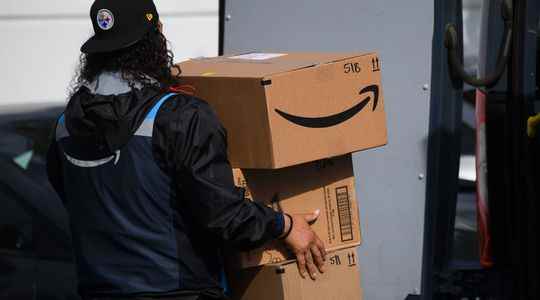In March 2020, as the pandemic raged, Christian Smalls, an Amazon warehouse worker near New York City, staged a strike to protest unsanitary conditions. He was immediately sacked by the e-commerce giant who accused him of having violated the quarantine rules. With a few colleagues, he then decided to launch a campaign to create a union. No one gives him a chance. Amazon, the second largest employer in the United States, has blocked all attempts for years. And yet, in early April, despite intense dissuasive work by management, the staff voted 55% in favor of the formation of the first union within Amazon. An extraordinary victory.
“The pandemic has changed the work environment, says Susan Schurman, professor at Rutgers University (New Jersey). Employees find themselves in a negotiating position, because companies have a lot of trouble recruit labor.” In addition, the health crisis has allowed some of them to understand that they are essential cogs, when they were previously considered a negligible quantity. They are therefore asserting their rights.
Barbecues at the exit of the warehouse
The victory of Amazon employees is all the more staggering since they did not benefit from logistical or financial assistance from a major trade union body. They set up a booth at the exit of the warehouse where, using funds raised on GoFundMe, they organized barbecues, filmed videos posted on TikTok and spent time convincing their colleagues.
Many were skeptical. After all, Amazon guarantees them an hourly wage of $18, well above the minimum wage, as well as parental leave and health insurance. Yet deteriorating sanitary conditions, the feeling of being treated like robots and the rising inflation that is eating away at their salaries – at a time when the company is posting record profits – have motivated them.
Amazon, of course, has deployed the heavy artillery. Last year, the company spent 4.3 million dollars to crush any unionist ambitions in its warehouses. She bombarded the teams with text messages, imposed many meetings – presented as information sessions – in order to warn against the dangers of trade unionism. These heavy-handed tactics had the opposite effect to that intended. The arrest in February, at the instigation of the management, of three organizers and the distribution of an e-mail from the legal director describing Christian Smalls as a guy “not smart and who expresses himself badly” galvanized the staff.
Management “disappointed”
“American law greatly favors employers, continues Professor Schurman. It is much more difficult to unionize here than in France.” The obstacles are many. In the private sector, depending on one’s title and function, it is forbidden to join a central. And a company is almost never sanctioned if it dismisses an employee wishing to form a union. An example: Starbucks recently fired seven servers from a coffee shop in Tennessee…
At the Amazon warehouse, however, the David versus Goliath battle is only in its first round. The Seattle group will do everything to challenge the legality of the vote to prevent it from inspiring other similar attempts. He said he was “disappointed” with the outcome of the election. “We believe the best for employees is to have a direct relationship with the company,” reads a blog from the firm.
This will drag out negotiations on the collective agreement, which often last for years. Meanwhile, management hopes the ringleaders will get discouraged or quit their jobs, allowing them to revoke the union’s certification. No wonder, under these conditions, that only 10.3% of American workers are unionized, half as many as in 1983.
Inertia of large power plants
Will Amazon’s example snowball? Two other distribution centers of the group organized a vote. And trade unions have recently sprung up in New York Times, at Google and REI, a chain of camping articles. And since December, at least ten Starbucks cafes have one and nearly 150 more have applied.
“We now need the big trade union centers known for their ‘inertia’ and lack of ‘vision’ to manage to coordinate this grassroots movement,” said Steven Greenhouse of the think tank The Century Foundation. “The story of Starbucks hardly encourages optimism about the ability of American union leadership to wake up,” he judges, however, in a forum. The latter did nothing to “transform all this excitement into a wave of unionization”. In the meantime, at Amazon, we are preparing our weapons. On both sides.
